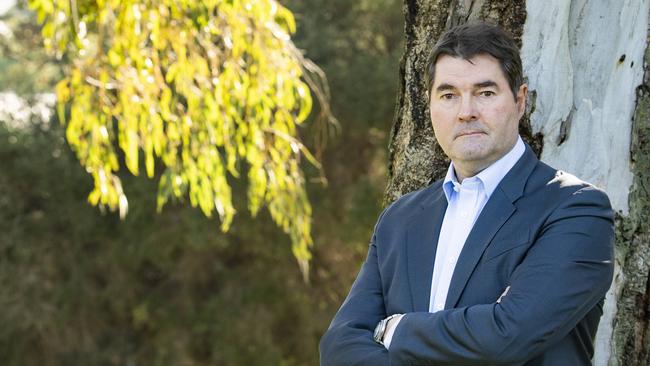Victorian authorities investigate a cluster of mysterious horse deaths
Answers have proved hard to come by as to why a spate of Victorian horses suddenly died earlier this month. Read the chief vet’s report here.
There have been no further deaths of horses reported to authorities but the cause of a series of mortalities remains a mystery.
Agriculture Victoria staff have found what they say are only “normal causes of death” despite the 13 horses all dying within hours or a day of the onset of symptoms.
Testing to date has shown no presence of an emergency animal disease or infectious diseases already present in Australia.
Victoria’s chief veterinary officer Dr Graeme Cooke said the investigation “has identified no immediate common link between these incidents, and no evidence of an infectious cause, so there’s no need to restrict horse movements or horse events”.
“We’re continuing to attend properties, work with owners, vets and experts, test samples and look into all reports of horse deaths made to our hotline,” he said.
“The best chance of getting some answers requires early notification and extensive sample collection for any new cases.”
Agriculture Victoria has cautioned the horse world to be wary of what they share on social media about the horse deaths.
“Please be mindful of what you share online, as posting misinformation can cause unnecessary alarm to horse owners,” the department said.

MONDAY, JULY 17
The death toll of sudden horse deaths on five separate properties in Victoria since July 4 has now risen to 13.
Victoria’s chief veterinary officer Dr Graeme Cook last week admitted it is “a difficult time for horse owners” and information from the public was “helping to build the bigger picture.”
It is understood Victoria’s Agriculture Department is investigating further deaths, including before July 4, and authorities seek to douse speculation and panic circulating across social media channels.
The properties where horses have died are on the Mornington Peninsula, southeast and southwest Victoria.
“We’ve been working with private veterinarians and experts to understand the causes of
those deaths, and alerting horse owners and the public via a media release, website update, social media and industry updates,’ Dr Cooke said.
‘Our investigation has identified no immediate common link between these incidents, and no
evidence of an infectious cause, so there’s no need to restrict horse movements or horse events.
“The best chance of getting some answers requires early notification and extensive sample
collection for any new cases.”
Departmental testing has ruled out known equine diseases, including anthrax and the Hendra virus, and contaminated feed after owners reported some ill-fated animals were feeding on grasslands.
Concerned investigators are now exploring the possibility of micro-toxin contamination of waterways and soils.
The 13 dead horses all displayed a variation of colic-like distress, appetite loss, high temperatures, diarrhoea and a languid demeanour.
Dr Cooke said while the investigation was still in its infancy, there were so far no common linkages beyond that the horses had died quickly from short, non-specific illnesses.
“Comprehensive testing for a range of disease, and importantly, non-disease causes, is underway,” he said.
“We know this is a difficult time for horse owners, that’s why we are working with veterinarians and a range of experts to find answers.”
Multiple horse deaths on a single property are uncommon but, when they do occur, departmental investigations prioritise infectious causes and ingestion of toxins.
The department also requested the Victorian Farmers’ Federation circulated information to members as it aimed to discover how widespread the situation was.
Dr Cooke urged people not to share “unconfirmed information” online or across social media.
Woodrange Specialist Equine Hospital equine veterinarian John Russell said the Bayles practice had been bombarded with phone calls from worried locals and vets from around Australia who had recently dealt with the death of a horse.
“Now that Hendra and equine influenza have been ruled out we are not now expecting a huge outbreak of horse deaths, but it is still a big worry,” he said.
“People should not panic at the moment, all you can do is monitor your horses and if any get sick ring your vet.”
Mr Russell said colitis, an inflammatory bowel disease, was also on the cards.
“Horses die of colitis really quickly and you can have a little outbreak,” he said.
“But there does not seem to be any commonality between these dead horses, that is the thing that is weird and probably why the micro toxins is the most likely (cause) at the moment.”
However, he also said a cause of death may never be found, citing a similar situation that unfolded several years ago in Bega, on New South Wales’ Sapphire Coast.
“I spoke to the vet who dealt with that outbreak this morning and they came to the conclusion that it was a micro toxin in the soil, but that was more diagnoses by exclusion,” he said.
The Australian Veterinary Association said the significant clinical sign of one horse a member had examined prior to death was fever, with a core body temp greater than 40C.
Anyone with concerns has been urged to call the Agriculture Victoria Emergency Animal Disease Watch Hotline on 1800 675 888.




